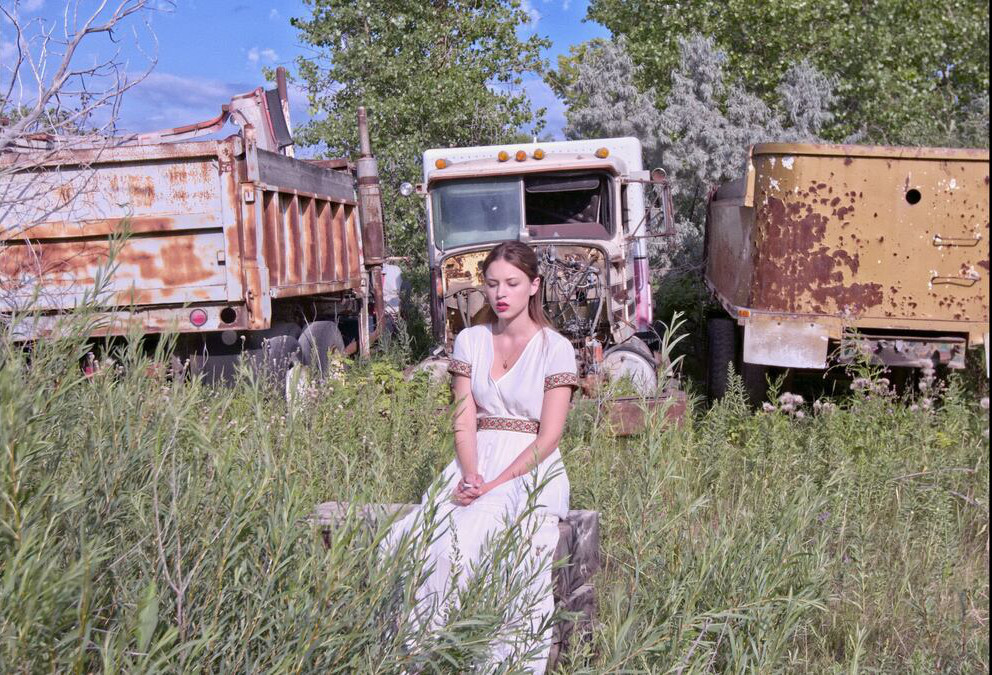Stranger in a strange land
Deco Dawson and Yuliia Guzhva on the making of Diaspora
Change is never easy, especially when your new neighbours speak a different language. In a town as diverse as Winnipeg, the story of foreign fish in a new pond is familiar and frightening, which is precisely the feeling local filmmaker Deco Dawson hopes to capture in his new film Diaspora.
The film follows Eva, a young Ukrainian immigrant, and her experience as a newcomer searching for a sense of belonging.
“We start the movie with her arriving in Winnipeg, being dropped off on Selkirk Avenue with little more than a wad of cash and a red suitcase,” Dawson, who directed, wrote, edited and performed other roles in the production of Diaspora, says.
As a Ukrainian expatriate herself, lead actor Yuliia Guzhva lends authenticity to her portrayal of Eva.
“The story of Eva is not just the story of a Ukrainian immigrant, but all immigrants,” Guzhva says.
“To not just tell a story but give viewers the feeling of that alienation and loneliness that an immigrant goes through ... the way I was able to do that is because I was the character once. I do miss home, and I do feel exactly what Eva feels.”
Dawson, a Winnipeg native with Ukrainian heritage, deems the project a “metaphorical autobiography,” speaking to the universality of the forlorn immigrant experience.
He describes the staunchly localized production as “a blast,” noting the relaxed atmosphere on the set of his first feature-length film production.
“We just had so much fun that a lens went down in the middle of the shoot, and we had a dance party in the middle of Logan Street at two in the morning.”
Taking to the streets of Winnipeg on foot to scout for the film’s 145 locales, Dawson discovered an overlooked splendor in the city’s architecture that he sought to preserve, citing the neighbourhoods of the North End as a major inspiration for the motion picture.
“Sometimes the best creative energy is in your own backyard, and you don’t know it. There’s so much life that happens in the city of Winnipeg that I had explored, and the script came out of these original locations,” Dawson says.
“A lot of these buildings are disappearing, because no one pays attention to them. We shot this before the pandemic and, sure enough, since, 35 per cent of the buildings have been torn down or they’ve changed into something else. That stuff, when it’s gone, it’s gone forever, and part of you just mourns for the dying of Winnipeg.”
After Russia launched a full-scale war on Ukraine in February 2022, the tale of a displaced Ukrainian took on added pathos, despite the film being shot three years prior.
“There is currently a genocide happening in Ukraine. There is a horrible war,” Guzhva says.
“Many had to relocate and find new homes, and many are having this same experience that Eva is having in Diaspora. My personal experience was a choice. Many do not have that choice right now.”
Dawson notes the prescience of the film’s direction that makes it that much more affecting today.
“There’s one particular shot in the movie towards the end of a burnt-down warehouse, and it was a bit heavy-handed at the time. Now, that shot looks like all the news footage we get out of Ukraine. It’s even more poignant now than when we shot it,” Dawson says.
Published in Volume 77, Number 14 of The Uniter (January 12, 2023)








